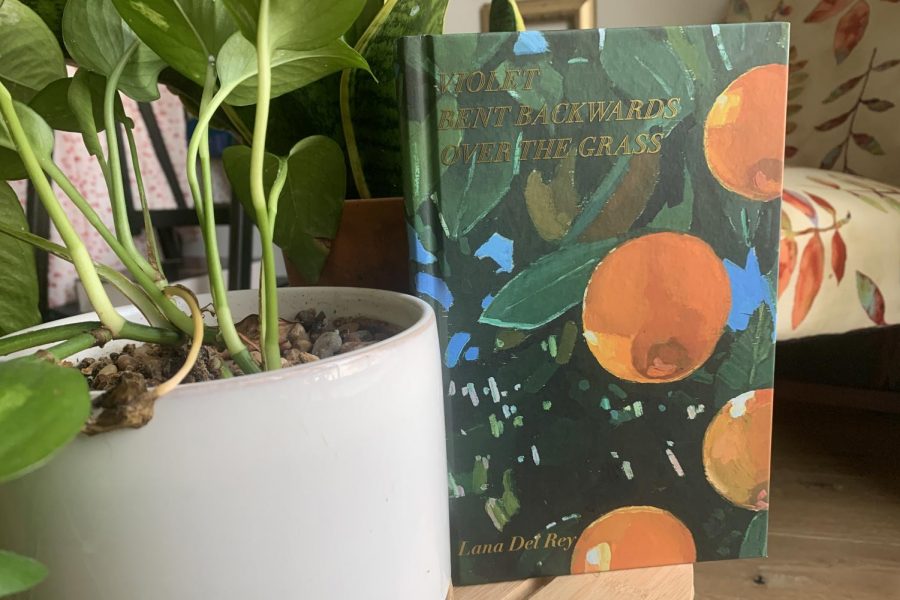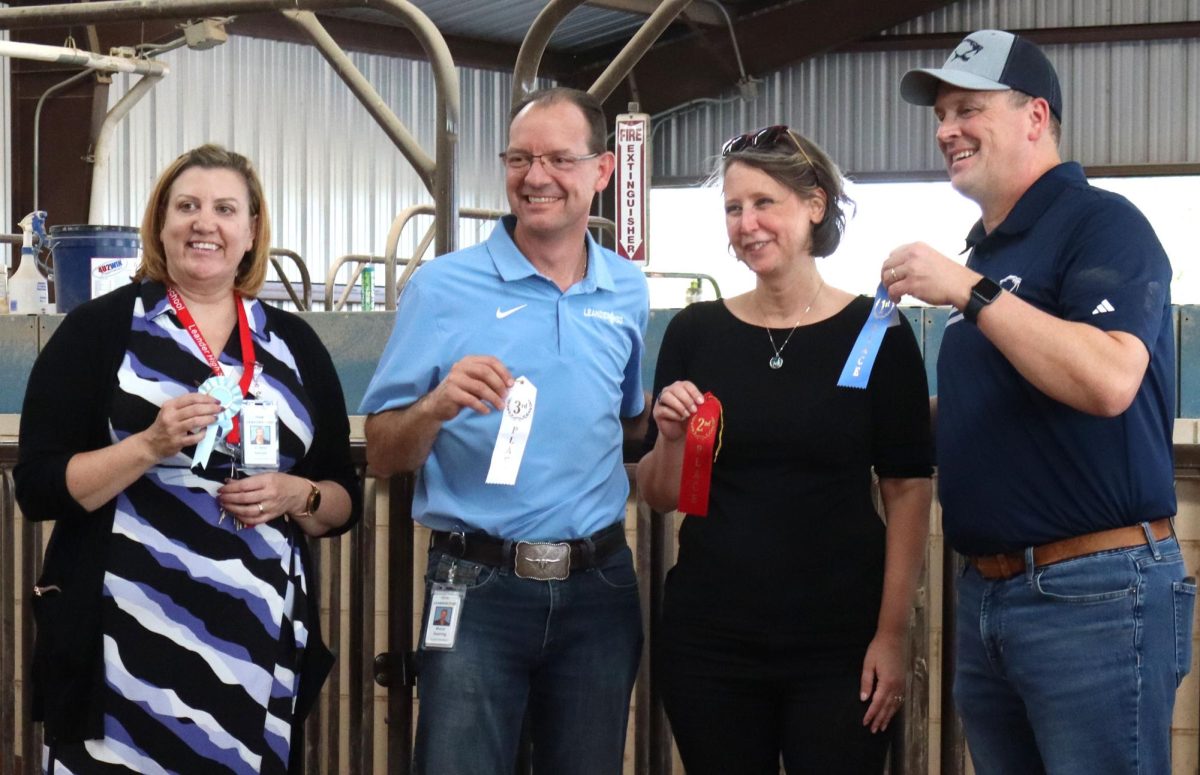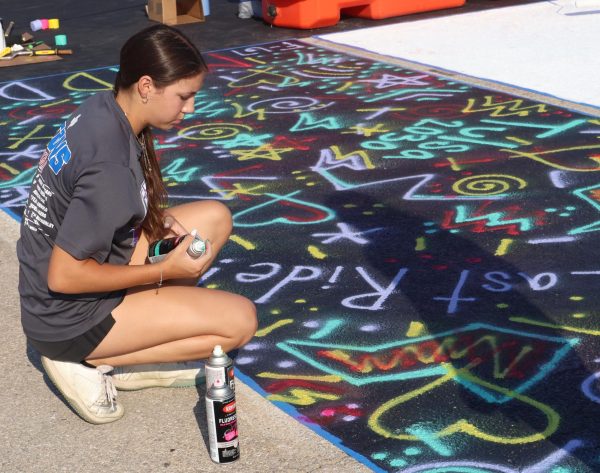Book Review: Violet Bent Backwards Over the Grass
A collection of poems by Lana Del Rey
March 5, 2021
When I think about Lana Del Rey, I think of an aesthetic. Both in her music, featuring intimate singing and dreamy, dark Americana lyrics, and her brand itself, Del Rey has constructed a unique, easily identifiable image that resonates with fans and is a topic of scorn for her critics.
“Violet Bent Backwards Over the Grass” is exactly the poetry collection Del Rey’s fans—and critics—would expect. Her poetry, typewritten and often handwritten over, is printed on sepia-toned paper and interspersed with Del Rey’s photography and oil paintings by artist Erika Lee Sears. The appearance of the book itself thoroughly encapsulates the singer-songwriter’s aesthetic.
The actual poetry does this as well. There are 14 poems in the collection, written in the distinctive style one would expect of lyrics to a Lana Del Rey song. Her frequent references to Los Angeles, especially the fourth poem in the collection (“LA Who am I to Love You?”), as well as the way her poems speak to an unidentified second person (you) sound incredibly similar to her song lyrics.
However, not every poem is the same. Her longer works, like the previously mentioned “LA Who am I to Love You?” which spans four pages, drag a little at times, owing to their repetitive nature. Additionally, while the inconsistent rhythm and rhyme scheme strengthen some works, it feels faltering and uncertain in others when read. It is important to note that Del Rey’s recordings of herself reading her poetry, spoken over faint music, make these mechanical issues fade away through the intimacy of her soft, relaxing voice.
The biggest complaint I have about this collection can be seen in “Happy.” There was always, unavoidably going to be some self indulgence present in this collection, but nowhere is it more evident and eye roll-worthy than this specific piece. Del Rey, a Grammy-nominated artist with a $30 million net worth, opens this poem with the line “you thought i was rich and i am but not how you think,” and goes on to describe how her riches can be found in happiness. While the poem is written with the same pretty, nostalgic imagery as the others, the core meaning reads as laughable given Del Rey’s circumstance.
Unlike “Happy,” many of Del Rey’s poems are delightful, especially the shorter ones. The titular work, “Violet Bent Backwards Over the Grass,” is simple but lovely, describing the speaker entering a party, observing Violet outside, joyful “with the exuberance that only doing nothing can bring.” Both the image and the meaning of this poem are encapsulated beautifully in the simple, dreamily described imagery. One of the later poems, “My bedroom is a sacred place now – There are children at the foot of my bed” describes a toxic relationship in an impactful way. It begins with a dark description of Del Rey’s former partner as a monster before growing in optimism and showing her taking solace in her art, with the repeated line “the more i step into my poetry the less i will fall into being with you.”
Overall, “Violet Bent Backwards Over the Grass” does what it set out to do, and it does so successfully. For fans of the singer-songwriter, this collection will undoubtedly resonate and appeal like her songs, and for her critics it will also be impossible to separate from their impressions of Del Rey. “Violet Bent Backwards Over the Grass” gets 3/5 stars.








